Publications
Articles, publications, books, tools and multimedia features from the U.S. Institute of Peace provide the latest news, analysis, research findings, practitioner guides and reports, all related to the conflict zones and issues that are at the center of the Institute’s work to prevent and reduce violent conflict.
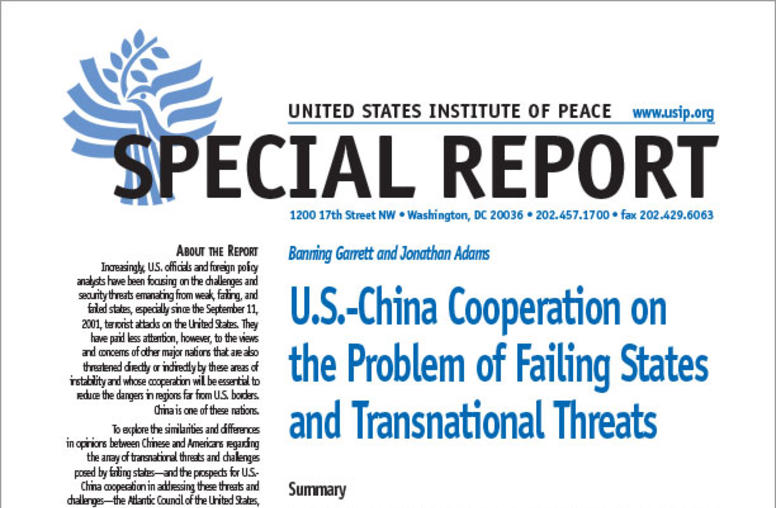
U.S.-China Cooperation on the Problem of Failing States and Transnational Threats
Summary American and Chinese perspectives on the threats and challenges emanating from failing states have been converging, especially since the September 11, 2001, terrorist attack on the United States.
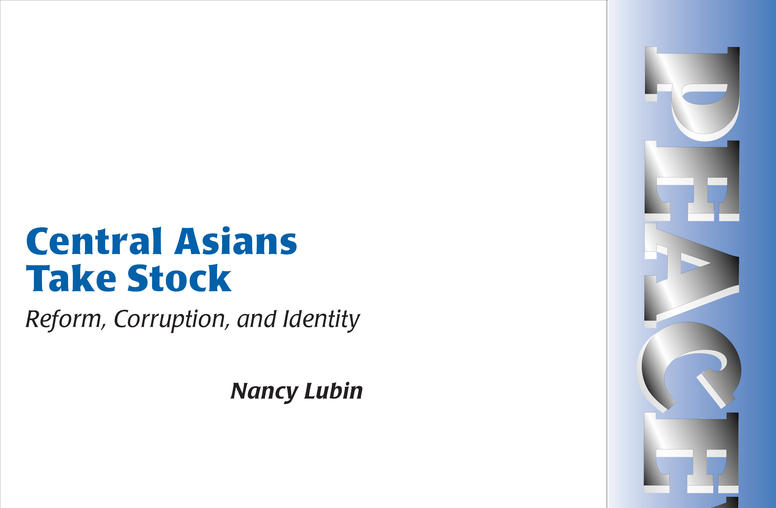
Central Asians Take Stock: Reform, Corruption, and Identity
The United States is interested in encouraging the development of stable, democratic systems, and market economies in new countries such as Uzbekistan, Kazakhstan, and Turkmenistan, and to minimize the social, ethnic, religious and other sources of conflict that could destabilize the region further. But increasingly, effectiveness in these efforts will depend as much on the views from below as from policies promulgated from above.
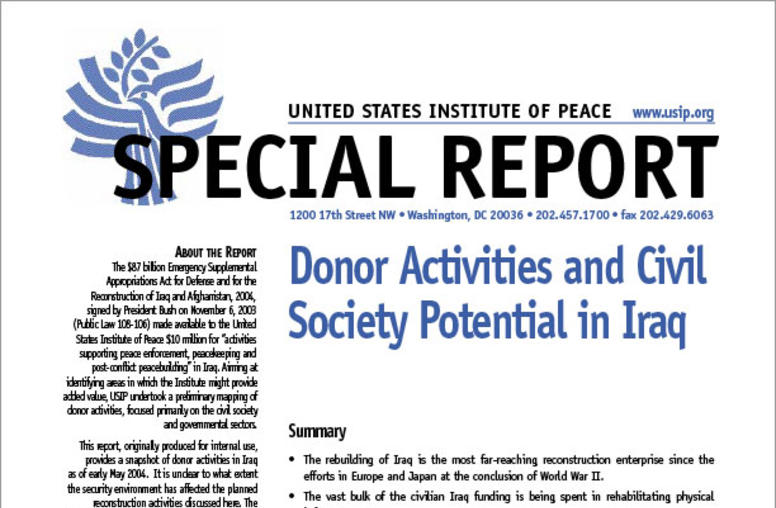
Donor Activities and Civil Society Potential in Iraq
The $87 billion Emergency Supplemental Appropriations Act for Defense and for the Reconstruction of Iraq and Afghanistan, 2004, signed by President Bush on November 6, 2003 (Public Law 108-106) made available to the United States Institute of Peace $10 million for “activities supporting peace enforcement, peacekeeping and post-conflict peacebuilding” in Iraq. Aiming at identifying areas in which the Institute might provide added value, the Institute undertook a preliminary mapping of donor ac...
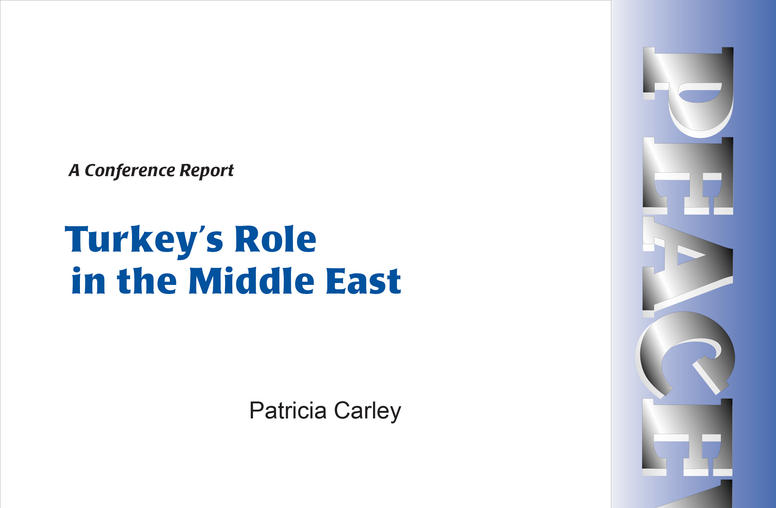
Turkey's Role in the Middle East
The end of the Cold War seemed to portend a decline in Turkey's strategic importance to the West; however, the political changes in the world since 1989 have also loosened the constraints within which Turkey can act. As a result, Ankara's foreign policy has been redirected from its strictly western orientation to one in which the countries of the Middle East have become potentially more significant.
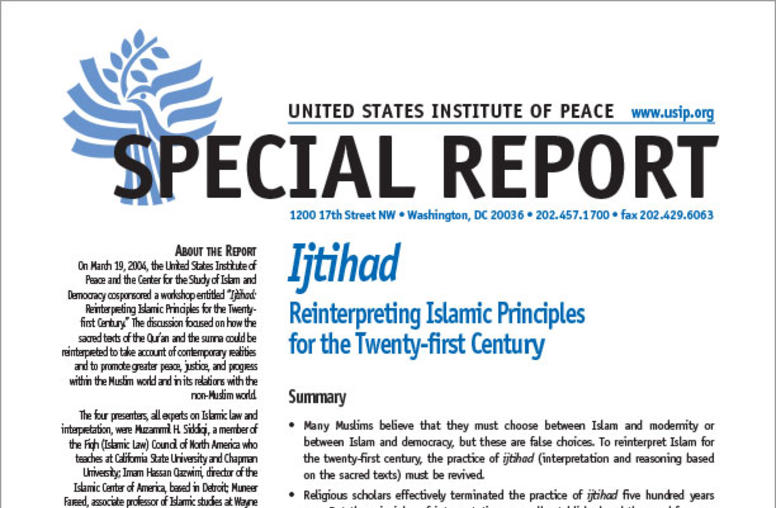
Ijtihad: Reinterpreting Islamic Principles for the Twenty-first Century
Summary Many Muslims believe that they must choose between Islam and modernity or between Islam and democracy, but these are false choices. To reinterpret Islam for the twenty-first century, the practice of ijtihad (interpretation and reasoning based on the sacred texts) must be revived. Religious scholars effectively terminated the practice of ijtihad five hundred years ago. But the principles of interpretation are well established and the need for contemporary interpretation is co...
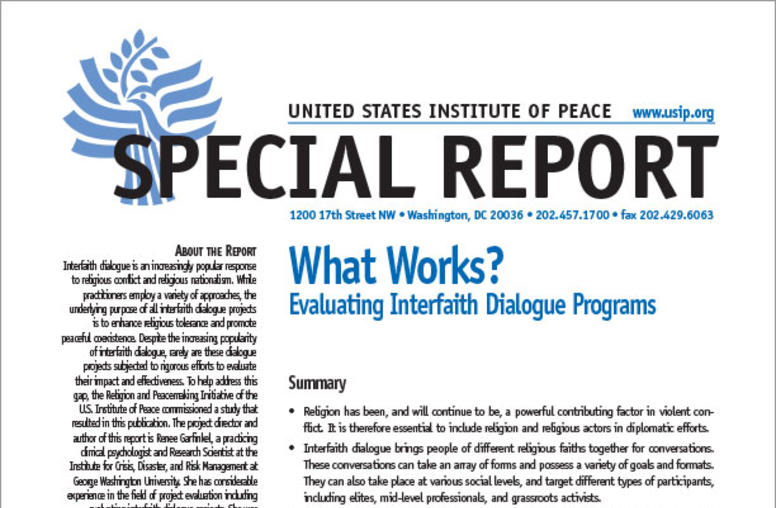
What Works? Evaluating Interfaith Dialogue Programs
Summary Religion has been, and will continue to be, a powerful contributing factor in violent conflict. It is therefore essential to include religion and religious actors in diplomatic efforts.
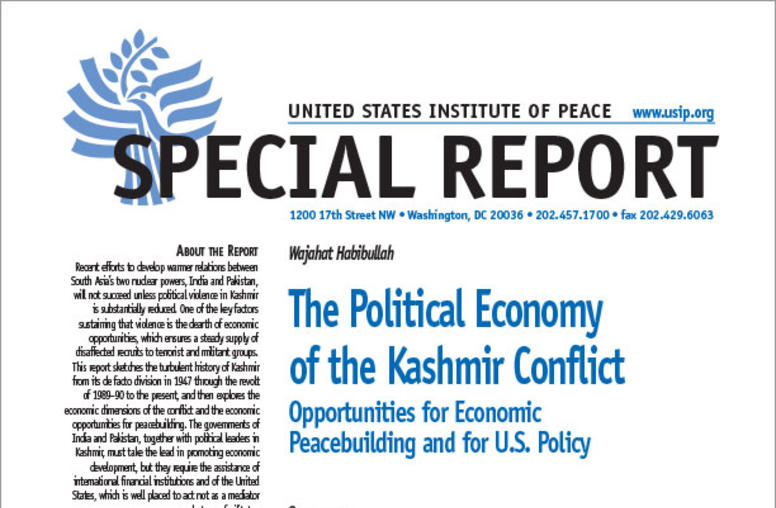
The Political Economy of the Kashmir Conflict: Opportunities for Economic Peacebuilding and for U.S. Policy
Summary The governments of India and Pakistan have recently indicated a desire to develop warmer relations and to settle the issues that divide them by peaceful means. This endeavor will not succeed, however, unless political violence in Kashmir is substantially reduced.
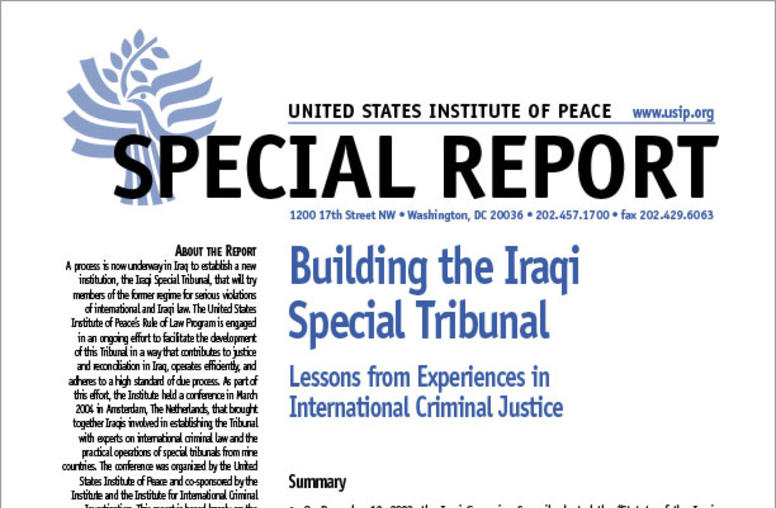
Building the Iraqi Special Tribunal: Lessons from Experiences in International Criminal Justice
A process is now underway in Iraq to establish a new institution, the Iraqi Special Tribunal, that will try members of the former regime for serious violations of international and Iraqi law. The United States Institute of Peace’s Rule of Law Program is engaged in an ongoing effort to facilitate the development of this Tribunal in a way that contributes to justice and reconciliation in Iraq, operates efficiently, and adheres to a high standard of due process.
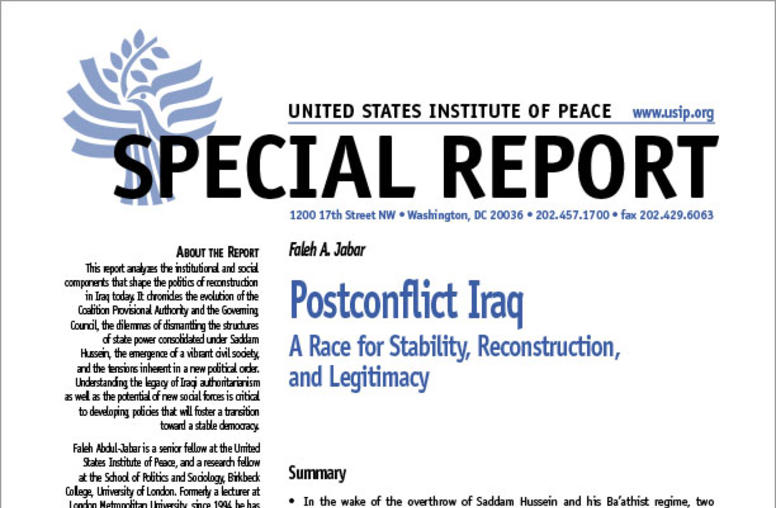
Post-Conflict Iraq: A Race for Stability, Reconstruction, and Legitimacy
This report analyzes the institutional and social components that shape the politics of reconstruction in Iraq today. It chronicles the evolution of the Coalition Provisional Authority and the Governing Council, the dilemmas of dismantling the structures of state power consolidated under Saddam Hussein, the emergence of a vibrant civil society, and the tensions inherent in a new political order.
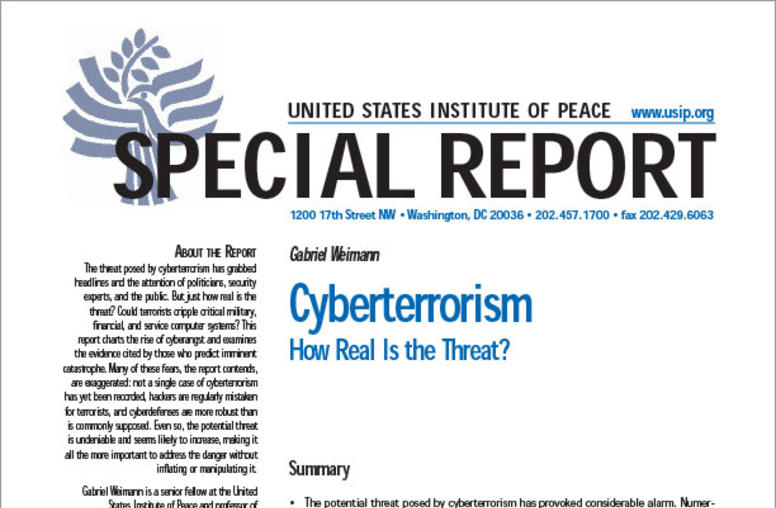
Cyberterrorism: How Real Is the Threat?
Summary The potential threat posed by cyberterrorism has provoked considerable alarm. Numerous security experts, politicians, and others have publicized the danger of cyberterrorists hacking into government and private computer systems and crippling the military, financial, and service sectors of advanced economies.